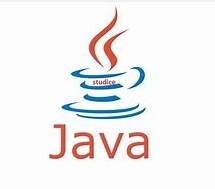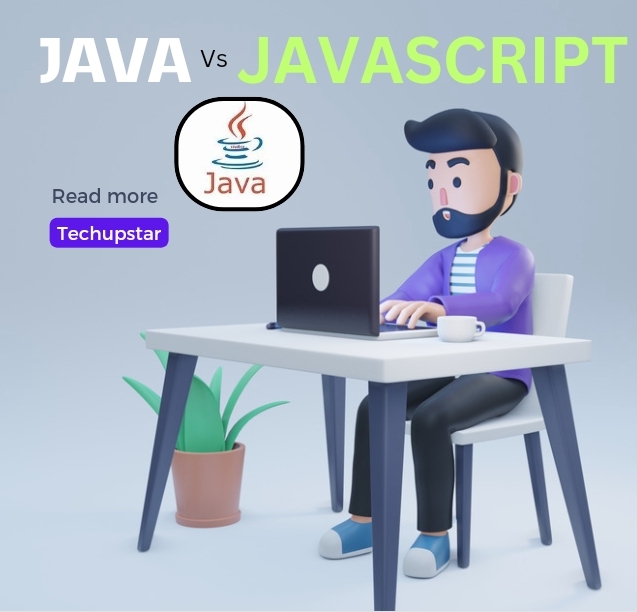When it comes to developing websites and applications, two of the most popular programming languages are Java and Javascript. Both have their own strengths and weaknesses, making choosing between them a difficult decision. In this article, we’ll delve into a complete Java Vs Javascript guide, where we will compare their performance, syntax, development speed, job market presence and more. Whether you’re new to coding or an experienced developer looking for a refresher course on these two languages, this guide will give you all the information you need to make an informed decision.
Java vs Javascript Performance comparison

When developers are deciding which language to use for their project, performance comparison is an important factor. Java vs Javascript are both popular, versatile languages; however, they have different performance characteristics that can make one more suitable than the other depending on the task.
Speed
In terms of speed and resource management, Java is generally seen as faster due to its Just-in-Time (JIT) compiler which converts bytecode into machine code during program execution.
Threads
Additionally, it is also better equipped in handling multiple threads efficiently while still conserving system resources such as memory usage and CPU cycles.
Compilation
On the other hand, Javascript does not compile at runtime and instead relies on caching systems like Node or V8 to improve performance; its single threading architecture requires extra workarounds by developers if they wish to utilize multiple threads efficiently.
Compilation process wise, Java’s JIT compiler creates bytecode faster compared to Javascript which creates source code directly from text files which can take longer in some cases. However, since Javascript does not need compilation every time you run a program it offers quicker development speed overall.
How both languages cache
Finally, caching systems play an essential role for each language’s capabilities; Java uses sophisticated garbage collection algorithms while JavaScript utilizes optimized memory usage with improved speed over time through caching systems such as Node or V8.
Java Vs Javascript Syntax Comparison

The syntax of Java and JavaScript are very different, making them suitable for different tasks and skill levels.
Java is an object-oriented programming language that is focused on readability and maintainability. It uses classes to define objects, with each class containing a set of methods and attributes. Java’s static typing allows developers to declare the type of data that will be stored in a variable, providing compile-time safety which improves code accuracy and reduces debugging time.
On the other hand, JavaScript is a flexible scripting language often used to add interactivity to webpages. It uses prototypes instead of classes and employs dynamic typing which means data types are determined at run-time instead of compile-time. This provides developers with more flexibility when writing code but can make debugging more difficult as errors may not be caught until the code runs. Furthermore, JavaScript relies on runtime evaluation to determine the value of a variable or expression, meaning it can be difficult to evaluate code without running it first.
Ultimately, whether you choose Java or JavaScript depends on your project requirements and skill level as a developer. For larger projects requiring high performance and stability, Java would be a better choice due to its static typing system providing compile-time safety for improved accuracy in coding. On the other hand, if you need something quick and simple with advanced user interaction capabilities then JavaScript would be suited for this task due to its flexible syntax allowing faster development speeds even though it requires extra workarounds when debugging errors due to its dynamic typing system.
Which is better?
The debate between Java and Javascript has been long-standing in the world of programming, with both languages having their own unique set of pros and cons.
Ultimately, the decision of which language to use depends on the project at hand and the skill level of the programmer.
In terms of performance, Java is generally seen as faster due to its Just-in-Time (JIT) compiler and ability to handle multiple threads efficiently. On the other hand, Javascript relies on caching systems to improve performance and requires additional workarounds by developers owing to its single thread architecture. Compilation process wise, Java’s JIT compiler creates bytecode quicker compared to Javascript which generates source code directly from text files. Despite that, since it does not require compilation every time you run a program it offers swiffer development speed overall.
Java vs Javascript Job Market
The job market for Java and Javascript is an important factor to consider when deciding which language to learn. As a developer, you’ll want to ensure that the language you choose is in demand and has potential for growth.
In this section, we will compare the types of positions available for both languages, the demand for developers in each language, and the salaries that each commands.
Java is a more popular language than Javascript and is used mainly for enterprise software development as well as web applications. It has been around longer than Javascript and has become an industry standard due to its scalability and wide range of applications. As a result, it has a larger community of developers making it easier to find qualified talent for various roles. The average salary for Java developers ranges from $67k – $120k depending on experience level.
Javascript is primarily used for front-end development but can also be used for mobile app development. It is seen as less secure and less robust than Java so it tends to be used more sparingly in enterprise environments but its popularity continues to grow due its versatility and ability to create interactive web pages quickly. The average salary of a Javascript developer ranges from $60k – $90k depending on experience level.
Ultimately, when considering which language to learn it’s important to understand the job market associated with each language. While many factors should be taken into account such as ease of use and performance capabilities, understanding the job market will provide valuable insight into each language’s long-term potential and help make an informed decision about which one to learn first.
Java vs Javascript Which is easier

Java vs JavaScript are two of the most popular programming languages used by developers in the modern technology industry, but which one is easier to learn? This section provides an overview of both Java and Javascript in terms of ease of learning.
Java is an object-oriented language that is considered to be relatively easy to learn. It has static typing, which means that variables must be declared with a specific type before they can be used, allowing for better readability and maintainability. Additionally, it has many libraries available for developers to use, making code reuse simpler.
On the other hand, JavaScript is a scripting language that is usually seen as more difficult to learn than Java. It is dynamically typed, meaning that variables can change types at runtime and do not need to be declared first. This can make debugging more difficult as errors may not show up until run time. Additionally, experienced developers are needed in order for code written in Javascripts runs correctly every time.
Why did Java and JavaScript have similar names?
JAVA and JavaScript are indeed similar in name but they function differently .
JAVA existed before JavaScript and JAVA was popular during the time it was discovered by Sun Microsystems later Netscape also discovered JavaScript.
Just to trend with the already existing JAVA Netscape went ahead to name it JavaScript so that it can flow with the trend.
What are Java and JavaScript used for?
Do you want to know the functions of each language?
This will help you to understand it better.
Uses of JAVA
- It is used for building web and mobile applications
- It is used for Android app development
- It is used for server-side development. etc.
Uses of JavaScript
- It is used to make a website more interactive.
- It is mostly used to create an environment that allows website users to interact with each other on the website. etc.
Conclusion
The decision to use either Java vs Javascript for any given project comes down to understanding the task at hand and the level of expertise of the developer. All things considered, it is essential that you have an understanding of your specific requirements before making such a decision about which language you should learn first or use in production.






